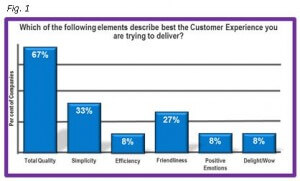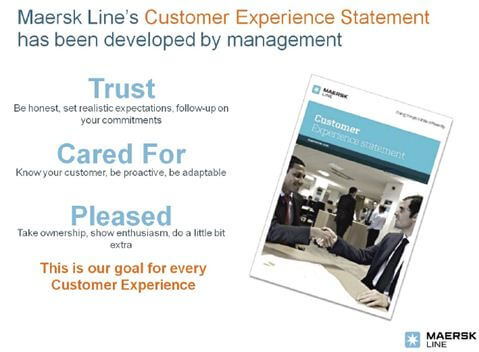
How emotions are emerging as a competitive differentiator
I’ll start with a real life story. The CEO of a company decided not to renew the contract with their telecommunications provider even though they were the cheapest. Puzzled by that the account manager sought to speak to the CEO and found that the reason for this decision was that the CEO’s daughter had a very bad experience with the provider on her pre-paid phone, dealing with the B2C side of the company. The CEO said that he doesn’t want to deal with a company that treats its customers that way, obviously driven by an emotional response to his daughter’s experience. While also showing the importance of having a 360 degree view of the customer, something that many telecoms miss, this story comes to say farewell to all the myths about rational decision making, especially in the B2B sector. As Prof Raj Raghunathan from the University of Texas puts it:
“We are ruled by our emotions first, and then we build justifications for our response. We want to be considered scientific and rational, so we come up with reasons after the fact to justify our choice”.
Another interesting finding comes from neuroscientist Antonio Damasio, who studied people who had received brain injuries, in which only the part where emotions were generated was impaired. He found that in practice they found it very difficult to make decisions about where to live, what to eat, etc.
What is the experience Telecoms are trying to deliver?
We conducted a research amongst senior customer experience professionals and executives from 40 leading Telcos in North America, Latin America, Europe, Africa and the Middle East. 70% of those said that they have defined the experience they want to deliver (although just 30% said that most of their employees would be able to articulate it).
Of those that had defined it, 67% said that the element that characterises it most is “total quality”, 8% said “efficiency” and 33% said “simplicity”. While all of these sound good, what it really means is that
the majority of telecoms are focused on fixing the basics.
They tend to rely on voice of the customer programs and complaints data to see what’s broken in the experience and fix it, primarily looking at the experience as a process. In most cases little or no consideration is given on the emotional side of the experience… and we have empirical proof of this.
Back in 2005, Beyond Philosophy did research with several leading business schools in the UK, to find which emotions drive value (e.g. spend, customer satisfaction, likelihood to recommend etc.) for businesses. We knew that emotions play a role in decision making but we wanted to find out which ones play a role in the interaction with businesses. The 20 emotions on the “x” axis on Fig. 2 are the ones that we found to drive value (see our book “The DNA of Customer Experience: How Emotions Drive Value” for more information).
Since then we have worked with many companies around the globe and collected more than 30 000 data points on each emotion, including more than 1000 data points from Telecoms. As you can see from Fig.2 the negative emotions (the reds) are relatively low, not as low as the average business, but still relatively under control. This is as a result from Telco’s efforts to fix the reasons for complaints, improve the efficiency of operations, in a word – total quality management. Sounds familiar?
However, removing the stimuli to negative emotions doesn’t necessarily mean that people will suddenly start feeling positive emotions such as happy, pleased, valued etc. Bill Gibeault of Story Mavericks blog, even points that “research shows, that making customers happy, is one of the most important emotions to develop screaming fans of your business?
Doesn’t seem like rocket science, but I don’t believe that many business meetings have a subject matter of “How Do I Make Customers Feel Happy” as a main meeting priority – he adds.
Did you know that Zappos also has a “Chief Happiness Officer? Some of the reasons most organisations haven’t adopted the customer emotions as a business concept is that “emotions” sound fluffy and are difficult to measure whereas the people who usually get promoted and make it to the top are praised for their “analytical thinking” and “logical approach”. Colin Shaw in his blog points to more reasons why the awesome power of Customer Emotions is not being embraced by business.
As you can see from Fig.2, the average business scores are just about the mid-point on the positive emotions as well. This means that there is scope and room for differentiation if you are to move in that area and create an emotionally engaging experience.
Some telecoms have already started to focus on the emotional side of the experience!
During our research, one of the largest European telecoms told us that they started to operationalize evoking planned emotions in the experience. For example, the rise of smartphones usage, meant for them, just like for many other telecoms, increased call centre traffic with questions like “how do I do X”. But this telecom operator found that senior people felt embarrassed when they rang up as young agents treated them as stupid. They thought about customers emotions and now when elderly smartphone users call their call centres with a question “how do you do X”, the agent says “well I don’t know that myself, let’s find out together”. This immediately builds an emotional connection with the customer, something that very few call centres manage to do.
Same company realized B2B customers on the other side needed reassurance e.g. just someone to check at the end on the call that they get what they needed. If you think about it, when you deal with businesses on behalf of your company, often at stake are your reputation or even career. Having in mind that many people go to bed and wake up with their work in mind, it is no surprise that our database shows that the B2B experience is more emotional than the B2C experience. By deliberately planning to evoke “reassurance” in their customers, that company decided to address their emotions.
This European telecom is not alone though. In one of his recent blogs Colin also reports that senior people in Comcast (Cable operator in USA) and Tellus (Canada) presented in a conference in Miami about how they are starting to use emotions as a key differentiator.
Telecoms could use a best practice example from another industry. Back in 2009 we started working with one of the largest container shipping companies in the world – Maersk Line. The 2008 financial crisis almost brought to a halt the shipping business and companies had to cut prices to maintain revenues. Maersk Line sought a way out of this “race to the bottom” and saw an opportunity to create customer loyalty by improving the customer experience. They focused their strategy on three key emotions i.e. Trust (be honest, deliver on promises), Cared for (be proactive) and Pleased (take ownership, do a little bit extra).
As a result of this and the overall Customer Experience program we helped them implement enabled them to increase their Net Promoter Score® (likelihood to recommend) from -10% to +30% in 30 months. They also found that for every 4% improvement in the NPS® they got 1% increase in cargo volume. Thus the programme proved to be a huge success and the return on investment was phenomenal (to learn more check our case study or view the webinar recording).
To read more about our research amongst Telecom’s customer experience professionals download our white paper.
| Zhecho Dobrev is a consultant and project manager for Beyond Philosophy. He has worked with a wide array of large corporate companies. Zhecho’s expertise includes customer behaviour analytics, customer loyalty, complaints management and journey mapping. He holds an MBA and Master’s degree in International Relations. Zhecho Dobrev on Twitter @Zhecho_BeyondP |




